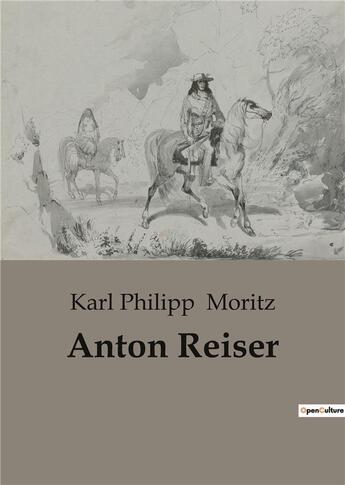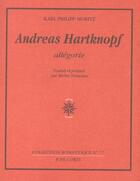-
Date de parution : 22/02/2023
-
Editeur :
Culturea
-
EAN : 9791041945450
-
Série :
(-)
-
Support :
Papier
Résumé:
Published in 1785, Anton Reiser is arguably the most important novel of the German 18th century. A contemporary of Goethe's Werther (1774), it quickly gained fame which earned it translations in Italy and in Anglo-Saxon countries and even in France, where it has not, however, been reprinted... Voir plus
Published in 1785, Anton Reiser is arguably the most important novel of the German 18th century. A contemporary of Goethe's Werther (1774), it quickly gained fame which earned it translations in Italy and in Anglo-Saxon countries and even in France, where it has not, however, been reprinted since the first Empire. . It is an autobiographical account describing, according to the author, the feeling stifled by the bourgeoisie. To this socio-cultural theme, however, are added other elements - the hypochondriac character of the tenderly loved mother, the incomprehension and harshness of the father, etc. just as important, to which Anton Reiser owes being considered the first German psychological novel. Animated by an intransigent, painful, masochistic desire to present himself without disguise (influence of Rousseau's Confessions), Karl Philipp Moritz's hero seeks in art, especially theater, a refuge against his anguish and his narcissism.Concretely, this novel of the tearing of the self consists of a neo-picaresque description of real or symbolic journeys and of attempts at social integration constantly doomed to failure. A work of fundamental pessimism, it stands between the end of the Aufklärung and the flowering of the Sturm und Drang on the fringes of all currents of the time...
Donner votre avis















